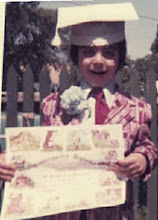I host an annual book discussion at the local community garden where I volunteer. This year, I decided to pick The Hunger Games by Suzanne Collins. This is a young adult novel that is all the range among the tween set and beyond. I think many adults are put off by the young adult novel, but they can be great books that are enjoyed by all ages. For example, I recently reread A Wrinkle in Time by Medeline L'Engle. I would rate that a great novel without qualification.
The Hunger Games presents a post-apocalyptic future where the country is divided into a number of districts. Each district has to put forth children to do battle in a gladiator ring. The plot points and the themes are totally up my alley. My hope for this novel is that, like Animal Farm or Lord of the Flies, the conceit of the plot is merely a launching pad to explore deeper truths. We shall see whether this novel is simply this year's fad, or whether it resonates enough to be remebered and read by future generations. Stay tuned.
Thursday, July 22, 2010
Sunday, July 11, 2010
Gilead
On Saturday, I finished reading Gilead by Marilynne Robinson. The novel takes place in 1956 in a small town in Iowa. The conceit of the book is that it is a long letter written by a 76 year old Calvinist pastor (John Ames) to his young son. John Ames is in the last stages of heart disease and will not be around to teach his son the moral lessons that a father would impart to a child over time. In the letter, written over a period of several weeks, Ames writes to his son about his own family history. Ames' grandfather, a young man living in Maine in the 1830s, had a vision of Christ bound in chains. He decided to move to Kansas, which was still a territory, in order to fight for Kansas' admittance into the Union as a free state. Ames' grandfather's tactics in the support of abolition includes violence. This is a hell of a thing, considering that the grandfather is a preacher himself. Ames' letter to his son continues the story of his grandfather, his father and that of his best friend's wayard son, who has returned home after being away for many years. The book is a lyrical exploration of the concepts of forgiveness, faith and grace. The story of the prodigal son permeates throughout the book.
When Ames sets to telling the story of his family, the book is really engaging. However, the more philosophical musings can bog down the reading. This is not a quick read, but it is worthwhile.
When Ames sets to telling the story of his family, the book is really engaging. However, the more philosophical musings can bog down the reading. This is not a quick read, but it is worthwhile.
Subscribe to:
Posts (Atom)
